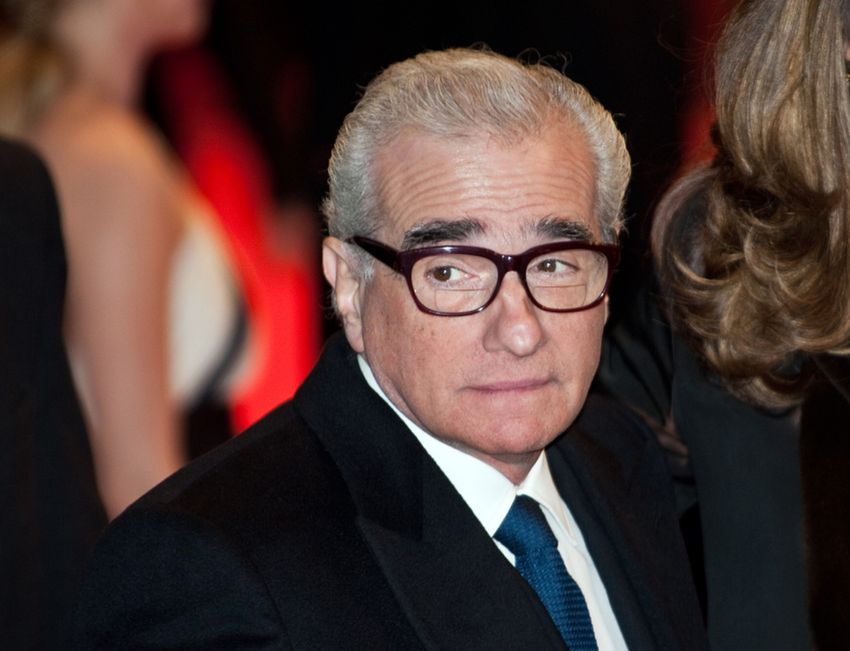After Netflix recently released Red Notice — one of its “biggest movies ever” that cost them a massive amount of money — it stirred a lot of conversation regarding form and content as well as the future of cinema inside and outside of the platform. Looking at the star-studded ensemble and the lack of narrative or cinematic aesthetics thereof, one wonders if Netflix Originals are just like moving runaways to present a stellar ensemble cast walking in to embellish the film without any purpose or narrative progression. This takes us back to Martin Scorsese’s essay for Harper’s Magazine.
Written, primarily, about the maestro filmmaker Federico Fellini, the Taxi Driver director also saw fit to criticise streaming services like Netflix for “devaluing” cinema and reducing it to just content, ignoring style and substance.
Scorsese, 79, is the legendary auteur whose explosive and personal cinematic content has been the subject of study among cinephiles and film-buffs for decades. A champion of cinema with an illustrious career and a rich legacy, he remains unfrazzled even in the face of criticism, primarily about his negative and stereotypical portrayal of Italian-Americans and general backlash from the Catholic church.
Scorsese has had a brilliant collaborative relationship with actors like Robert De Niro, Leonardo DiCaprio, Harvey Keitel, Joe Pesci, Frank Vincent and more. He has transcended all genre categorisation, dabbling in all genres ranging from classic gangster films to aristocratic love stories, a clash between divinity and humanity to the exploration of human emotions and dysfunctional relationships.
Some of Scorsese’s greatest hits are Goodfellas, Raging Bull, Taxi Driver, The King of Comedy, Casino, Mean Streets, The Age of Innocence, The Last Temptation of Christ and more.
In 2019, Scorsese made headlines for comparing Marvel flicks to “theme parks” and refusing to consider them as “cinema”, leading to a huge outrage from Marvel fans. However, in his defence, all the iconic filmmaker was concerned about was how the commercialisation of the film industry could lead to a decline in good content. Scorsese later clarified his statement by sighing, “The situation, sadly, is that we now have two separate fields: There’s worldwide audiovisual entertainment, and there’s cinema. They still overlap from time to time, but that’s becoming increasingly rare. And I fear that the financial dominance of one is being used to marginalise and even belittle the existence of the other.”
Although Scorsese has worked with streaming services like Apple and Netflix- his Netflix collaboration in 2019 resulted in a brilliant masterpiece like The Irishman, starring De Niro, Pesci, Al Pacino and more- he has reiterated his feelings regarding streaming services who are continually contributing to “the art of cinema” being “systematically devalued, sidelined, demeaned, and reduced to its lowest common denominator” due to their chase for “content”.
One cannot dismiss Scorsese’s concerns given the current state of Netflix’s content production. The lack of good quality products, outside of a headline-grabbing cast or controversial tome, makes one question the credibility of the streaming platform. Doomscrolling through the titles to end up on films like Army of Thieves or Red Notice is pretty insulting to cinema that is, according to Scorsese, “among the greatest treasures of our culture, and they must be treated accordingly.”
According to the veteran filmmaker, the term “content” has been violated and reduced to a meaningless exercise. It is now a form of commercialising and maximising the output from streaming platforms to churn out enough “content” and help stay relevant among the modern generation. The streaming services take away the “moviegoing experience”; the filmmaker, in his explosive essay, likened it to the burgeoning online presence of Amazon overtaking the physical shops.
While the streamer has its own collection of good films embellishing the shelves and one probably does not need to make a return to the glorious days of cinema, it is important to take the lessons into consideration, moving forward. Netflix’s algorithm is quite tricky and guides the user towards B-movies that often make them miss the point of enjoying a good film.
To feel, understand, appreciate and enjoy the art and aesthetics of cinema, one must sift the good content from the bad and focus on the style and substance rather than the number of films produced- Scorsese’s scathing essay is a reminder of the same as he tries to put the debate to rest once and for all.
